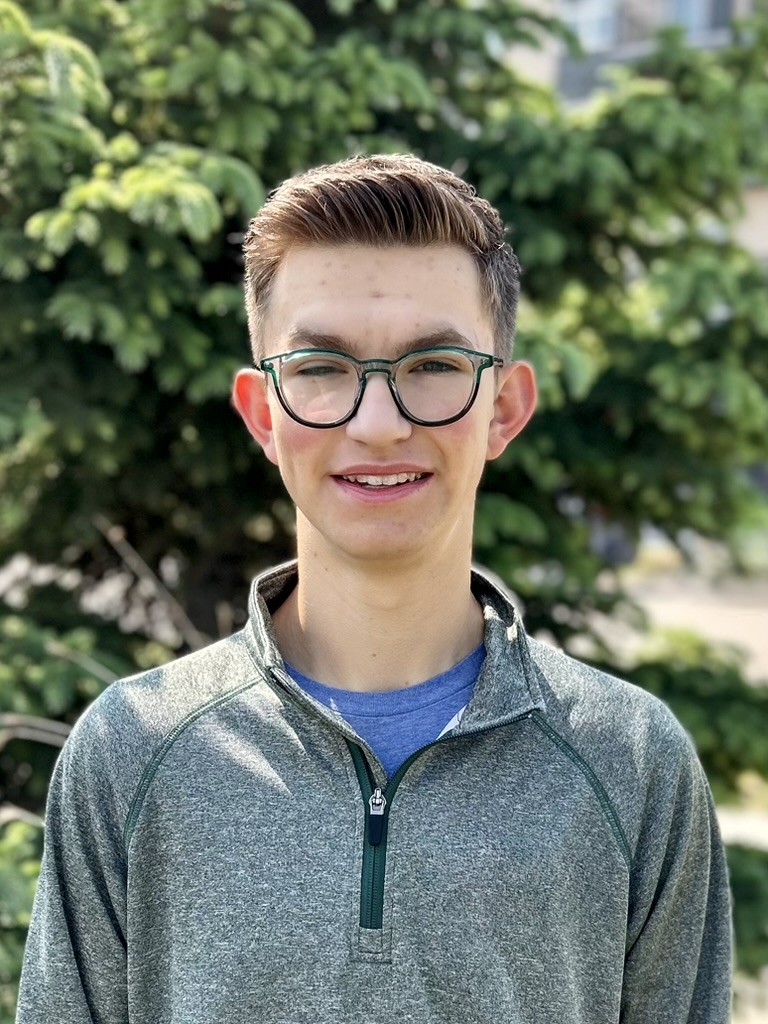Local News
Proposal by College of Physicians and Surgeons to have all circumcisions performed in medical clinics “cut off” before it could go anywhere
 By BERNIE BELLAN It began with an emailed message sent out by Jewish Federation CEO Elaine Goldstine to members of the community on July 13.
By BERNIE BELLAN It began with an emailed message sent out by Jewish Federation CEO Elaine Goldstine to members of the community on July 13.
In her message, Goldstine informed recipients that the College of Physicians and Surgeons of Manitoba had issued a draft proposal that, if accepted, would prevent any circumcisions from being performed anywhere other than in a “medical clinic”.
The proposal, however, did not include any specific reference to the Jewish tradition of “brit milah”, which has traditionally been performed in a home setting.
According to Goldstine, “If brought into force, this draft as it is currently worded would therefore make the performance of a brit milah by a physician outside of a medical clinic a violation of the College’s Standard of Practice.
Even though the Draft Standard by the College has been in the public domain for approximately one month, the Jewish Federation was only made aware of its contents yesterday” (July 12).
Further, according to Goldstine, “
The Jewish Federation immediately reached out to the College of Physicians and Surgeons of Manitoba to discuss the matter. Based on those discussions, this was unintentional.”
Subsequent to Goldstine’s email to members of the Jewish community, the Winnipeg Council of Rabbis sent a letter to the College of Physicians and Surgeons, also indicating strident opposition to what was perceived as the College’s new policy governing circumcisions.
In the letter, which was penned by Rabbi Allan Finkel of Temple Shalom, the Council enumerated a number of points, all of which detailed the long history of circumcision within the Jewish community.
B’nai Brith Canada also joined in the opposition to the College’s proposal, noting that “If enacted, this would constitute a significant infringement on the important Jewish lifecycle event of brit milah. Jewish circumcisions are typically family events hosted in homes or synagogues, involving a celebratory meal, blessings and speeches. None of these can practically take place in a medical clinic or hospital.
“In correspondence with B’nai Brith, the CPSM has clarified that pursuant to Manitoba law, non-CPSM members can also perform ritual circumcisions and would not be bound by the proposed Standard of Practice. But the main mohel, or Jewish circumciser, in Manitoba is a CPSM member, and the mooted change would have the effect of preventing any future Manitoba mohel from performing traditional Jewish circumcisions while maintaining a medical practice, which is standard across Canada.
“There is no evidence that the CPSM specifically consulted the Jewish community about the proposed change, despite its obvious impact on Jewish life in Manitoba. It is also not clear what prompted the proposed restrictions, and B’nai Brith is not aware of equivalent strictures in any other province.”
A perusal of laws as they apply in other countries did not turn up any other jurisdictions which require that circumcisions be performed only within a medical clinic.
We wondered what may have led to the College of Physicians and Surgeons, perhaps unintentionally but with drastic implications nonetheless, wanting to regulate the practice of circumcision in a way that had never been ordered previously?
As background to the College’s apparent radical policy directive, Myron Love sent me a story that was originally reported by the CBC in December 2018. In that story a CBC journalist reported on two botched circumcisions that had been carried out by a Dr. Ejaz Ahmad. The CBC report noted that:
“Two boys almost bled to death from botched circumcisions performed by a now-suspended Winnipeg doctor.
“Dr. Ejaz Ahmad pleaded guilty to professional misconduct on Oct. 15 (2018) for performing circumcisions on
as many as 18 pediatric patients in 2016 and 2017, when he lacked the training and know-how to do the procedures.
“Several of his young patients ended up in the emergency room with complications.
” ‘It is disturbing any time a physician practises and performs procedures that they are not competent to do,’ said Dr. Anna Ziomek, CEO and registrar of the College of Physicians and Surgeons of Manitoba, in an interview Thursday.
“Among the complications, two boys were rushed to hospital with potentially life-threatening bleeds, one after a portion of his penis was amputated and the other with arterial bleeding.
“Other boys experienced complications like swelling, pain, embedded gauze from improper wound care, possible infections and disfigurement.
“At least one boy’s penis was left so deformed he required a revision surgery.
“Ahmad admitted to using an inappropriate technique and lacking knowledge, skill and judgment. He acknowledged he provided anesthetic at a ‘non-specific dose,’ used only alcohol swabs to sterilize the surgical site and did not suture after circumcision.”
But, here’s a crucial part of the story: “The circumcisions were performed at Ahmad’s private clinic.”
One wonders, therefore, how the College’s proposal to require that all circumcisions be performed within a medical clinic would have made any difference if a physician is not fully competent to perform those procedures, as was evidently the case with Dr. Ahmad?
Apparently the storm that resulted from the initial disclosure by Elaine Goldstine in her email to community members that the College was considering ordering that all circumcisions in future be performed within a medical clinic led to a quick reversal on the College’s part.
By Friday, July 16, the College had posted a notice on its website indicating a complete abandonment of its proposal. Here is what that notice said, in part:
“We recognize that as currently written, the standard would implicate a practicing CPSM (College of Physicians and Surgeons of Manitoba) member performing a male circumcision outside of an appropriate medical facility. That was not the intention in drafting the standard…
“The standard will be amended. The standard will not infringe on any human or religious rights and freedoms whatsoever. The role of CPSM is to protect the safety of the public, and we will continue to strive to achieve this through appropriate regulation of the medical profession.
“At a minimum, the working group will add an exemption in the standard for male circumcision performed in a religious ceremony or tradition, particularly respecting low-risk neonatal circumcisions…
“CPSM established a working group in 2020, tasked with developing a new standard of practice for performing specific procedures in office-based practice settings, including male circumcisions.
“The working group did not consult with the Jewish community in its early development of the draft Standard; however, that is precisely the purpose of the current public consultation, and we are grateful for the feedback received.”
Local News
Further to the Simkin Centre’s financial situation

By BERNIE BELLAN A while back I published an article about the deficit situation at the Simkin Centre. (You can read it at “Simkin Centre deficit situation.“) I was prompted to write that particular article after reading a piece written by Free Press Faith writer John Longhurst in the August 5 issue of the Free Press about the dire situation personal care homes in Winnipeg are in when it comes to trying to provide their residents with decent food.
Yet, Longhurst made one very serious mistake in his article when he wrote that the “provincial government, through the Winnipeg Regional Health Authority, has not increased the amount of funding it provides for care-home residents in Manitoba since 2009.”
In fact, the WRHA has given annual increases to personal care homes, but its allocations are not broken down by categories, such as food or salaries. As a spokesperson for the WRHA explained to me in an email: “PCHs receive per diem global operating funding based on the number of licensed beds they operate. This funding model is designed to support the full range of operating costs associated with resident care, including staffing, food services, utilities, building operations, and other day-to-day expenses.”
Now, one can make a perfectly valid argument that the level of funding from the WRHA has not kept up with inflation, especially inflation in food costs, but the Simkin Centre is in an even more precarious position because of the skyrocketing cost of kosher food.
“In recent years,” according to an article on the internet, “the cost of kosher food has increased significantly, often outpacing general food inflation due to unique supply chain pressures and specialized production requirements.”
Yet, when I asked Laurie Cerqueti how much maintaining a kosher facility has cost the Simkin Centre, as I noted in my previous article about the deficit situation at Simkin, she responded: “approximately $300,000 of our deficit was due to food services. I do not have a specific number as far as how much of the deficit is a result of kosher food…So really this is not a kosher food issue as much is it is an inflation and funding issue.”
One reader, however, after having read my article about the deficit situation at Simkin, had this to say: “In John Longhurst’s article on Aug 5, 2025 in the Free Press, Laurie (Cerqueti) was quoted as saying that the annual kosher meal costs at Simkin were $6070 per resident. At Bethania nursing home in 2023, the non-kosher meal costs in 2023 were quoted as $4056 per resident per year. Even allowing for a 15% increase for inflation over 2 years, the non-kosher food costs there would be $4664.40 or 24% lower than Simkin’s annual current kosher food costs. If Simkin served non-kosher food to 150 of its 200 residents and kosher food to half of its Jewish residents who wish to keep kosher, by my calculation it would save approximately $200,000/year. If all of Simkin’s Jewish residents wished to keep kosher, the annual savings would be slightly less at $141,000.”
But – let’s be honest: Even though many Jewish nursing homes in the US have adopted exactly that model of food service – where kosher food is available to those residents who would want it, otherwise the food served would be nonkosher, it appears that keeping Simkin kosher – even though 45% of its residents aren’t even Jewish – is a “sacred cow” (pun intended.)
So, if Simkin must remain kosher – even though maintaining it as a kosher facility is only adding to its accumulated deficit situation – which currently stands at $779,426 as of March 31, 2025,I wondered whether there were some other ways Simkin could address its deficit while still remaining kosher.
In response to my asking her how Simkin proposes to deal with its deficit situation, Laurie Cerqueti wrote: “There are other homes in worse financial position than us. There are 2 homes I am aware of that are in the process of handing over the keys to the WRHA as they are no longer financially sustainable.”
I wondered though, whether the Simkin Centre Foundation, which is managed by the Jewish Foundation of Manitoba might not be able to help the Simkin Centre reduce its deficit. According to the Jewish Foundation’s 2024 annual report, The Saul and Claribel Simkin Centre Foundation, which is managed by the Jewish Foundation, had a total value of $11,017,635.
The Jewish Foundation did distribute $565,078 to the Simkin Centre in 2024, but even so, I wondered whether it might be able to distribute more.
According to John Diamond, CEO of the Jewish Foundation, however, the bylaws of the Foundation dictate that no more than 5% of the value of a particular fund be distributed in any one year. There is one distinguishing characteristic about the Saul and Claribel Simkin Centre Foundation, in that a portion of their fund is “encroachable.” The encroachable capital is not owned by JFM. It is held in trust by JFM but is beneficially owned by Simkin, similar to a “bank deposit”. While held by the JFM, these funds are included in the calculation of Simkin’s annual distribution.
I asked John Diamond whether any consideration had been given to increasing the distribution that the Jewish Foundation could make to the Simkin Centre above the 5% limit that would normally apply to a particular fund under the Foundation’s management.
Here is what John wrote in response: “The Simkin does have an encroachable fund. That means that at their request, they can encroach on the capital of that fund only (with restrictions). This encroachment is not an increased distribution; rather, it represents a return of capital that also negatively affects the endowment’s future distributions.
”It is strongly recommended that encroachable funds not be used for operating expenses. If you encroach and spend the capital, the organization will receive fewer distribution dollars in the next year and every year as the capital base erodes. Therefore, the intent of encroachable funds is for capital projects, not recurring expenses.”
I asked Laurie Cerqueti whether there might be some consideration given to asking for an “encroachment” into the capital within the Saul and Claribel Simkin Centre Foundation?
She responded: “We are not in a position where we are needing to dip into the encroachable part of our endowment fund. Both of our Boards (the Simkin Centre board and the Saul and Claribel Simkin Centre Foundation board) are aware of our financial situation and we are all working together to move forward in a sustainable way.”
At the same time though, I wondered where donations to the Simkin Centre end up? Do they all end up in the Simkin Centre Foundation, for instance, I asked Laurie Cerqueti on December 15.
Her response back then was: “All donations go through our Foundation.”
I was somewhat surprised to read that answer, so I asked a follow-up question for clarification: “Do all donations made to the Simkin Centre end up in the Simkin Centre Foundation at the Jewish Foundation?”
The response this time was: “No they do not.”
So, I asked: “So, how do you decide which donations end up at the Foundation? Is there a formula?”
Laurie’s response was: “We have a mechanism in place for this and it is an internal matter.”
Finally, I asked how then, the Simkin Centre was financing its accumulated deficit? Was it through a “line of credit with a bank?” I wondered.
To date, I have yet to receive a response to that question. I admit that I am puzzled that a personal care home which has a sizeable foundation supporting it would not want to dip into the capital of that foundation when it is facing a financial predicament. Yes, I can see wanting the value of the foundation to grow – but that’s for the future. I don’t know whether I’d call a $779,425 deficit a crisis; that’s for others to determine, but it seems pretty serious to me.
One area that I didn’t even touch upon in this article, though – and it’s something I’ve written about time and time again, is the quality of the food at the Simkin Centre.
To end this, I’ll refer to a quote Laurie Cerqueti gave to John Longhurst when he wrote his article about the problems personal care homes in Winnipeg are facing: “When it comes to her food budget, ‘we can’t keep making the same number of bricks with less straw.’ “
Local News
Exclusive: Security Enhancement Fund to be announced by Province in coming days

By NOAH STRAUSS The province is set to announce a new program called the Security Enhancement Fund, which will provide funding to religious and faith groups to improve security at institutions such as synagogues and mosques. In an exclusive interview, Minister of Justice Matt Wiebe outlined the plan and detailed what the province has already done to help protect Jewish Manitobans.
“What we want to do is to be able to provide the community with the kind of tools that they need to stay safe and to ensure that everyone in the community feels safe,” said Wiebe.
The fund will provide a missing link between government and religious communities, and
communities will now be able to make their own choices without money being a big restraint.
Essentially, the power will be in the hands of community leaders and not government officials.
The minister noted that the new partnerships will provide the province a better understanding of the needs of every community. Rather than the province making the choices, they are
essentially giving a voice to each community. The grants, totalling $1 million, will provide funds to enhance security at facilities like synagogues.
The Jewish Post reached out to Dr. Rena Secter Elbaze, executive director of Congregation
Shaarey Zedek. “It’s important that the government show us that they’re taking security seriously and stepping up to the plate to make this offer. We will absolutely be applying for grant money,” she said. Elbaze also wants to know whether or not the government will cover the costs of things the synagogue has already spent money on. She noted that the province has, in the past, made grants available to have security guards present.
When speaking about what the Justice Ministry has already done to protect Jewish Manitobans, Wiebe brought up the new special prosecutor that is focusing on hate crimes. Wiebe said thespecial prosecutor works closely with the Winnipeg Police Service “to support investigations and prosecute hate crimes. Wiebe also went on to say how the Department of Education has been helping to fight antisemitism. “The creation of the Holocaust education curriculum is an important step in the right direction,” he said. When asked about Oliver Didtger Ederhof, the individual charged with 14 counts of mischief including vandalism of Shaarey Zedek, Wiebe said decisions like bail and police undertakings are decisions that are in part made by the federal government through the criminal code and policies. “We’re going to continue to advocate for stricter bail reform at the federal level…. I’ve been very clear, we issued clarified directives around bail to our Crown prosecutors.”
The full announcement from the province is expected in the coming days.
Local News
March of the Living 2023 participants form Taste of Hope project to help honour the memory of Holocaust survivor Alex Buckman

By BERNIE BELLAN The March of the Living is an annual two-week international educational program that brings thousands of students and adults to Poland and Israel to study the Holocaust, Jewish history, and the rise of the State of Israel. Founded in 1988, it features a 3-kilometer silent walk from Auschwitz to Birkenau on Yom HaShoah (Holocaust Remembrance Day).
Attendees on the march are accompanied by adults, some of whom themselves have been Holocaust survivors.
Following the week in Poland, participants travel to Israel to observe Yom HaZikaron (Israel’s Memorial Day) and celebrate Yom HaAtzmaut (Israel’s Independence Day), marking a journey from darkness to life.
For many years the coordinator of the march in Winnipeg was Roberta Malam, working on behalf of the Jewish Federation of Winnipeg. More recently Abby Flackman filled that role, and now the person in charge is Lindsey Kerr.
Since its inception 37 years ago the March of the Living has become a rite of passage for many young Winnipeg Jews who have been able to participate as an organized group from Winnipeg and combine visits to the death camp at Auschwitz-Birkenau in Poland with the subsequent trip to Israel.
Then – the Covid pandemic hit – in 2020, and the March of the Living was put on hold for two years – in 2020 and 2021.
In 2022, the March of the Living resumed, but there was no organized contingent from Winnipeg participating. (There may have been some Winnipeggers who did go on the march that year, but if there were any they would have been part of a general Canadian group since there was no Winnipeg coordinator that year.)
In 2023, however, once again a very large contingent of young Canadian Jews – 51 altogether, of whom approximately two-thirds were from Winnipeg, went on that year’s March of the Living. That particular march was memorable for many reasons, including the fact it was the last full march since 2019 and was to remain the last march to have an organized Winnipeg contingent in the past six years as the years 2024 and 2025 were interrupted by the war in Gaza. (There were smaller marches held in 2024 and 2025, but again there was no organized contingent from Winnipeg.)
Recently, we were contacted by one of the participants of that 2023 march, Ethan Levene, who asked us whether we’d be interested in running what turned out be a very poignant story about one particular aspect of that 2023 March of the Living.
Here is what Ethan wrote:
“In April 2023, the Coast to Coast Canadian delegation of March of the Living was privileged to travel with Holocaust survivor Alex Buckman (z”l). March of the Living is a Holocaust education trip that allows participants to visit and bear witness to the sites of the Holocaust. Unfortunately, while sharing his story in Poland, Alex passed away. However, the impact he left on us students was immeasurable.

“While speaking to us in Warsaw, Alex told us the story of his Aunt Becky’s gâteau à l’orange (orange cake). While in Ravensbruck concentration camp, his aunt managed to write down this recipe. After his parents’ murder, his Aunt Becky went on to raise Alex after surviving. In addition to sharing his story, Alex tasked us with baking the cake with family and friends.
“Out of this, a group of alumni from our trip have created this project: ‘A Taste of Hope.’ On February 1st, university students from over 5 universities across Canada will come together to bake the gâteau à l’orange and hear Alex’s story. Proceeds from the event and this fundraising page will support the World Federation of Jewish Holocaust Survivors and Descendants. Alex was heavily involved with this organization, whose mission is to both create community for Holocaust survivors and their descendants and educate about the Holocaust to help fight against antisemitism and all forms of bigotry and hate.
“Here is information from our fundraising page for the event – ‘A Taste of Hope’: Fundraising for A Taste of Hope.
Ethan added that “it’s completely student led, all by alumni from our 2023 trip attending university at these various locations across Canada; Winnipeg, London, Kingston, Montreal.”
He also added: “Follow us on instagram@tastehope.“
Here is a link to a CBC story about Alex Buckman: Alex Buckman story
In a subsequent email Ethan gave the names of Winnipeggers who are involved in A Taste of Hope: Ethan Levene (studies at McGill), Zahra Slutchuk, Alex Stoller (studies at Queens), Coby Samphir, Izzy Silver (studies at Waterloo).
He also added names of others who are involved in the project: Jessie Ages, Anneke Goodwin, Lilah Silver, Ella Pertman, Ellie Vogel, and Talia Cherun.
To find out more about March of the Living in Winnipeg go to: March of the Living


